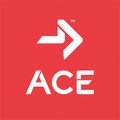ACE Advocacy and Outreach
This year, millions of adults in the U.S. will visit their doctors for a routine check-up. Two out of three American adults will be overweight or obese. At least four out of five will be less active than the recommendations set forth in the Physical Activity Guidelines for Americans.
In most cases, the doctors will easily recognize the need for their patients to make lifestyle changes. But many of the patients will never hear that message. In fact, fewer than half of all primary care physicians routinely provide their patients with guidance on lifestyle behaviors, such as diet, physical activity or weight control.
Other patients, however, may be fortunate enough to have a one-minute conversation about the need to make a lifestyle change. Phrases such as “You need to take care of yourself,” “Watch what you’re eating,” and “Try to get some more exercise,” will be common. In a relatively small percentage of cases, the conversations may even include specific nutrition guidance and an exercise prescription.
The patients will nod along, distressed but not terribly surprised. They will know that their clothes from a few years back are tighter now, and that they don’t have as much energy as before. Hearing it from their doctors, however, will bring some necessary focus to the issues. As they leave the office, many of the patients will feel inspired to live healthier lives. They will tell themselves it’s time to make a change.
But then they will arrive at home, or go back to work, and they will likely be immersed once again in a culture or environment that strongly supports unhealthy eating and sedentary behaviors. For many, willpower will be no match for the cultural environment. Knowledge and a desire for change will not be enough alone to make change. Rather, Americans struggling with weight management and poor fitness need support, guidance and expertise on behavior change.
“The breakthrough medicine of the 21st century is behavior change,” says Dr. Eddie Phillips, Founder and Director of the Institute of Lifestyle Medicine. Doctors want to help, of course, but they generally lack the time, training and skills necessary to empower their patients to live a healthier, more active lifestyle. That’s slowly changing through the great work of organizations like the Institute of Lifestyle Medicine, but it’s unlikely that physicians will ever be the key providers of intensive behavior change counseling. The time demands of the profession are simply too great.
As a result, the responsibility of providing the breakthrough medicine of the 21st century must ultimately be borne by other health professionals—well-qualified fitness professionals, health coaches, nurses, registered dietitians, medical assistants, physician assistants and others—who have received the proper training and gained the necessary expertise to create sustainable behavior change. These professionals will be the linchpin of a new health care system that supports people in between trips to the doctor—a system that focuses on healthy behaviors and the prevention and mitigation of chronic disease. And so in the future, millions of Americans will leave their doctor visits not just energized to adopt healthier habits, but fully empowered to do so, thanks to the vital support provided by health and fitness professionals just like you.
Are you interested in learning more about how behavior change knowledge can enhance your current skillset?
ACE offers several education opportunities and accredited certifications, including:




 by
by 










 by
by